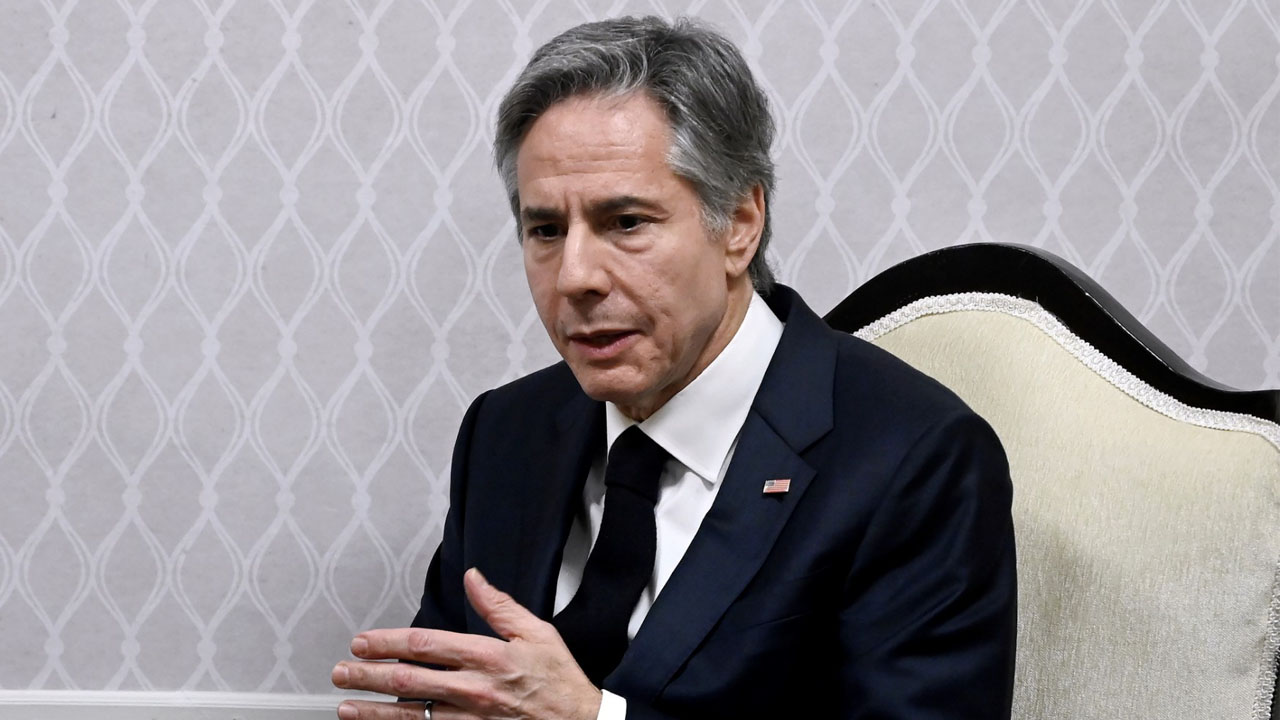
US Secretary of State Antony Blinken urged Ethiopia on Wednesday to “deepen the peace” in the country’s war-torn north as he moved cautiously to repair relations shaken by the brutal two-year conflict.
The top US diplomat was paying his first visit to the longstanding ally since the end of the war in Tigray, which claimed 500,000 lives according to US estimates, and led Washington to sever trade preferences with Africa’s second most populous nation.
As China and Russia increasingly seek influence in Ethiopia and around the continent, Blinken opened his visit by voicing hope for better relations as he sipped Ethiopia’s celebrated coffee at the foreign ministry.
“It is a very important moment, a moment of hope, given the peace in the north that has taken hold,” Blinken said.
“There is a lot to be done. Probably the most important thing is to deepen the peace that has taken hold in the north,” he added.
Blinken, who alleged crimes against humanity during the war, said his goal was “strengthening the relationship” with Ethiopia, home of the African Union, as US President Joe Biden pushes for closer relations with African nations.
Blinken later met with Prime Minister Abiy Ahmed, who wrote on Twitter that the two “agreed to strengthen the longstanding bilateral relations (between) our countries with a commitment to partnership” during talks that were closed to the press.
– Souring of relations –
Abiy, a Nobel Peace Prize winner, was once seen as at the vanguard of a new generation of forward-looking African leaders, but his reputation later took a beating in Washington over the war.
The violence erupted when the Tigray People’s Liberation Front (TPLF), which once dominated Ethiopian politics, attacked military installations, prompting a major offensive by Abiy’s government with backing from neighbouring Eritrea.
The TPLF came close to marching on the capital but, beaten back by pro-Abiy forces, agreed to disarm under a November 2 accord negotiated in South Africa by the African Union with US participation.
A key goal of Ethiopia is a return to the African Growth and Opportunity Act, US legislation that gave it duty-free access for most products to the world’s largest economy, but Washington has made no commitments.
Abiy has pledged to restore basic services in war-wracked Tigray, though it is impossible to assess the situation on the ground due to restrictions on media access.
Even as some normalcy returns to Tigray, violence has flared elsewhere in the diverse country, with killings in the Oromia region in the centre of Ethiopia.
The government has also sharply curtailed internet access across the country following a rift involving the powerful Orthodox Church.
Human Rights Watch and Amnesty International have both urged Blinken to press for full implementation of the peace deal and accountability for past abuses.
“Failure to do so will send a signal to perpetrators everywhere that the US will not stand up for justice,” Amnesty’s Africa advocacy director Kate Hixon said.
Segments of the growing Ethiopian diaspora in the United States have been sharply critical of the Biden administration, especially over its withdrawal of trade preferences, but has increasingly distanced itself from Abiy.
“The USA cannot advocate for human rights on one hand and make efforts to save and accommodate the worst human rights offenders on the other,” the American-Ethiopian Public Affairs Committee said in a statement on Blinken’s visit.
“Following the devastating conflict in Ethiopia, the USA must be on the side of the Ethiopian people,” it said.
The Tigray war has been one of the deadliest in the 21st century, with a US-estimated toll higher than that from Russia’s invasion of Ukraine, which has drawn far more global attention.
Moscow has since gone on a diplomatic offensive in Africa, including in Ethiopia, hoping the continent will stay neutral rather than join Western sanctions against it.
Russia’s efforts follow years of inroads in Africa by China, which has also offered the continent’s leaders relationships that are unencumbered by Western pressure on human rights.
[ad unit=2]



